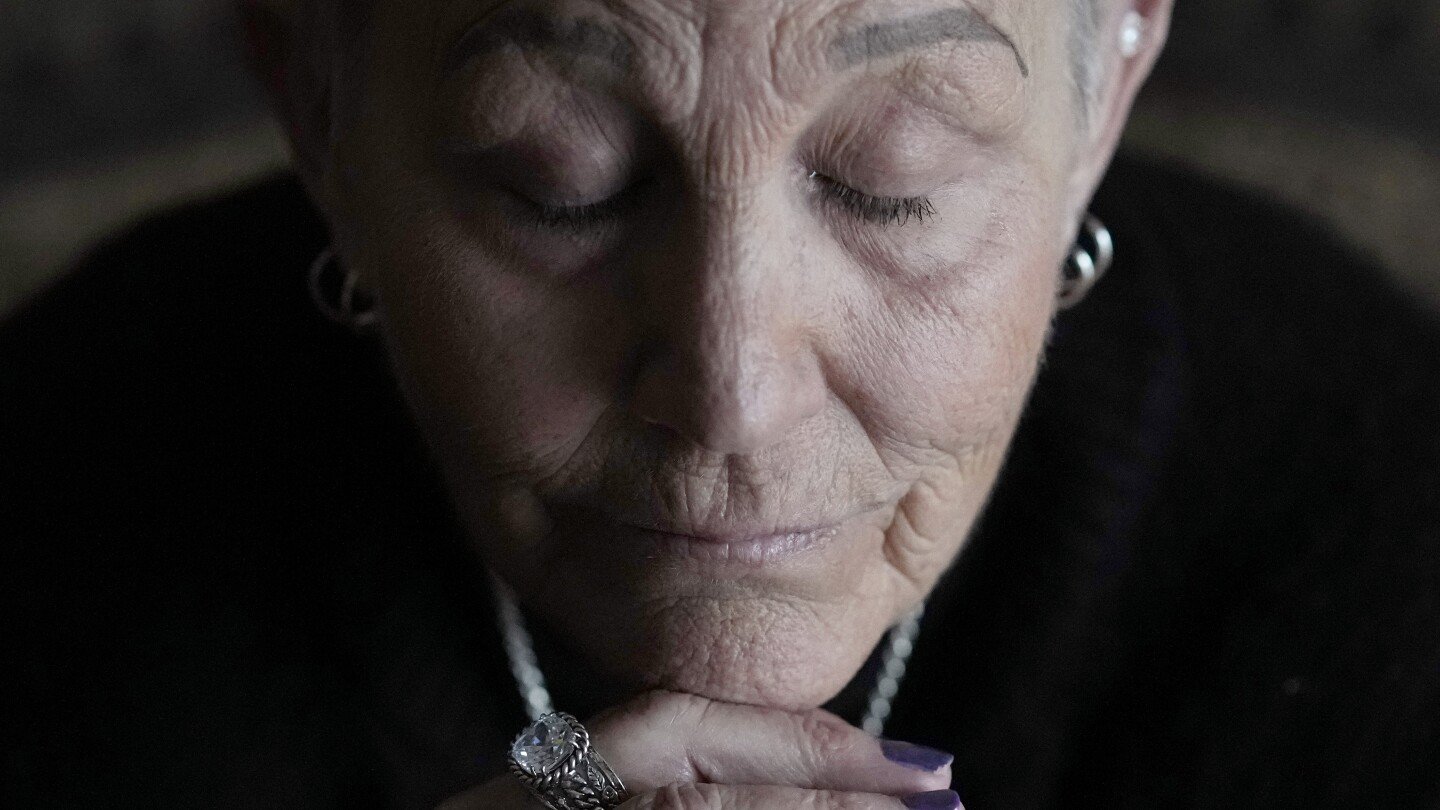On a brisk day at a restaurant outside Chicago, Deb Robertson sat with her teenage grandson to talk about her death.
She’ll probably miss his high school graduation. She declined the extended warranty on her car. Sometimes she wonders who will be at her funeral.
Those things don’t frighten her much. The 65-year-old didn’t cry when she learned two months ago that the cancerous tumors in her liver were spreading, portending a tormented death.
But later, she received a call. A bill moving through the Illinois Legislature to allow certain terminally ill patients to end their own lives with a doctor’s help had made progress.
Then she cried.
“Medical-aid in dying is not me choosing to die,” she says she told her 17-year-old grandson. “I am going to die. But it is my way of having a little bit more control over what it looks like in the end.”
That same conversation is happening beside hospital beds and around dinner tables across the country, as Americans who are nearing life’s end negotiate the terms with themselves, their families and, now, state lawmakers.



Mostly true, but there comes a point in poor health where you cannot travel at all, or fulfill the requirement of physically starting or engaging in the death process (if required), even if you’re rich as Croesus. This especially applies to end-term cancer, motor neuron diseases, etc. If you can’t drink through a straw, you can’t use your hands, or you can’t speak or otherwise make your wishes known, that excludes you from a number of programs that exist now.
In addition, there’s a catch-22 of how, when you are dying of a progressive disease like ALS or Huntington’s, every minute is bringing you closer to exactly the kind of suffering you want to avoid, while you may not yet be sick enough to physically qualify under the terms of that specific program or its country’s laws.
For example, if you were to want go to Dignitas in Switzerland, you are looking at a roughly 6 month lead time to get all the approvals and interviews and paperwork done, during which your disease may well progress to the point that even if you had a private plane and an army of carers to get you there, you would not be able to get there, or if you did, not be able to fulfill the requirements of the program. (They may have since removed this requirement as I no longer see it mentioned in Wikipedia, but back in the day if you could not pick up the cup or drink through the straw yourself, that was a complete disqualifier for Dignitas, understandably so.)
And even then, there are countries like the UK, and the number of people who could not travel and were forced to go through endless litigation with the government trying to get the right to end their suffering legally – but in doing so made it impossible to do on the sly without subjecting their survivors to legal jeopardy and possible accusations of murder. (Which is rather ironic, given that King George V was euthanized by his doctor with the royal family’s permission.)
I think a lot of that is changing, but not quickly enough. It’s still the age-old ongoing strife between people who can’t face their own inner baggage about the deaths of others, and people who just don’t see the point of needless terminal suffering.
For example, there are still methods anyone can use for autothanasia, rich or poor, like VSED, and today Nembutal is still fairly easy to get south of the US border – but even then if you have a personal carer that insists you do not have the right to end your physical suffering, and they squirt water down you throat or throw out your just-in-case meds, you’re screwed anyway.